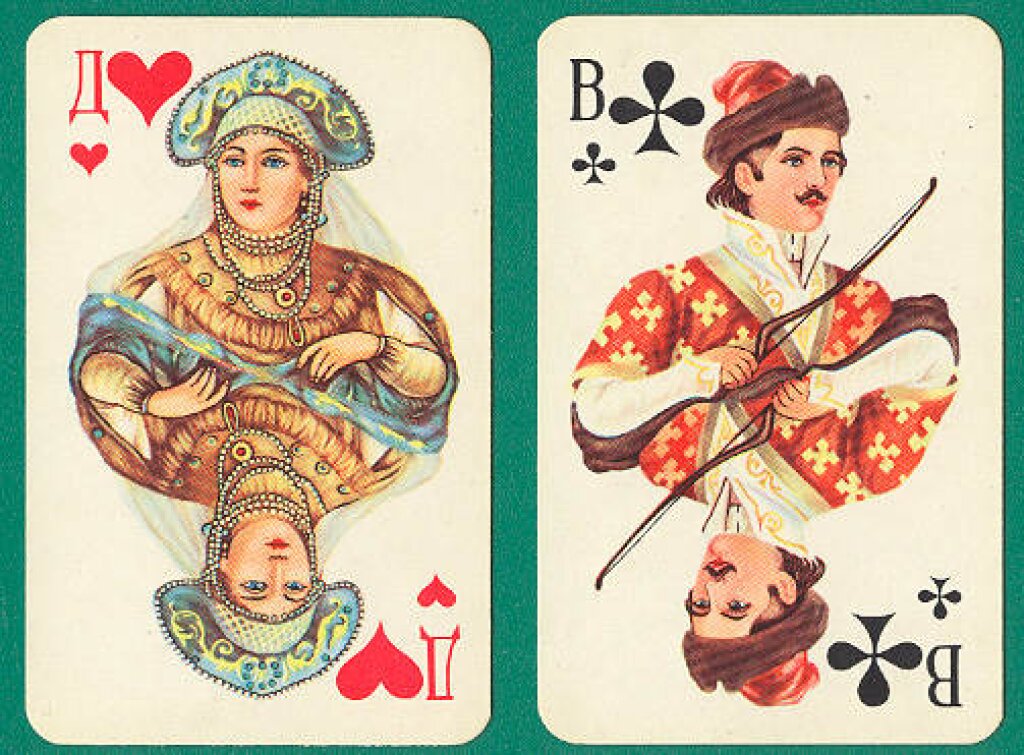This is the sixth installment of “Rereading Akunin” focusing on The Winter Queen. For the introduction to the series, and subsequent installments, go here.
The only plot point that screams “Russian literary classic” as loud as a duel is watching a nest of gentry throwing their lives away in a game of cards. Both are useful devices for portraying a conflict that is simultaneously a clash of wills and a game of chance, while keeping physical action to a minimum. Life-and-death struggles rarely get more elegant than this.
Chapter Eight,
In which the jack of spades turns up most inopportunely
Fandorin sits at the card table, daring the reader to play “spot the Russian literary allusion.” Never a cheat, Akunin wears his influence on his sleeves, rather than using them to hide his cards: the game they play is stoss, for God’s sake. A variant of Faro, stoss is best remembered as the title of Lermontov’s last, unfinished work, involving painting, gambling, and ghosts.
Where Lermontov's “Shtoss” ends on a cliffhanger (telling us the protagonist has made a decision, but not what the decision was), Chapter Seven of The Winter Queen finishes on a much more decisively ominous note. Zurov plays the queen of diamonds (“That’s Venus…She always comes to my rescue”), and Fandorin is stuck with the jack of spades. Put the two together, and of course you get the queen of spades, the title of Pushkin’s famous story of haunting and obsession. In Pushkin’s story, the queen of spades was connected to Hermann’s guilty conscience, and to the figure of the old woman who possessed a fatal secret. But surely Fandorin doesn’t know any old women hiding secrets, does he?
Chapter Nine,
In which Fandorin’s career prospects appear to improve
When he loses, Fandorin proves much luckier at Russian (sorry, American) roulette, impressing Zurov so much that they end up drinking bruderschaft. We are back on Lermontov territory, this time with allusions to “The Fatalist” from Hero of Our Time. Zurov takes pity on Fandorin, whom he assumes is hopelessly smitten with Amalia Bezhetskaya, and gives him a lead: under the name “Miss Olsen,” she is staying in London at a hotel called (wait for it) “The Winter Queen.” Yes, Akunin’s British publishers replaced a title named after a demon (Azazel) with a title named after a hotel. To be fair, though, most native speakers of English can at least pronounce “The Winter Queen.”
Fandorin exits, pursued not by a bear, but by a servant, who hands him his winnings.
That night, Fandorin returns to Pushkin and Lermontov territory, having a Mysterious Dream: he is back in school, with fellow pupils Brilling and Akhtyrtsev, as well as Amalia and Lizanka (whose presence he chalks up to progressive British models of coeducation, since their teacher is Lady Astair). In “Queen of Spades,” Hermann, who has been courting a young woman named Lizaveta in order to get a gambling secret from an old countess, dreams of the old lady after her death. Here Fandorin dreams that an old lady (Astair) declares Liza an orphan, only to have that same status claimed by the man who killed Akhtyrtsev.
It’s all very Romantic, and mildly Freudian (mixed-up parental figures and Oedipal declarations that the parents are dead); the scene is easily dismissed as both obligatory (how can we have this sort of story with a dream?) and desultory (a dutiful mid-book attempt to inject some actual psychology and interiority into a narrative that so far shows little of either). But it is also a message from Fandorin’s unconscious to keep an eye on Lady Astair.
When he awakens, Fandorin is in the office, and Brilling sends him on assignment to London to investigate Amalia, after Fandorin convinces his boss of the mission’s necessity (along the way appropriating Brilling’s annoying habit of enumerating evidence (“That’s one…that’s two”) that will forever be Fandorin’s second most ostentatious verbal tic. Oh, and Fandorin gets promoted again, something that seems to happen every three chapters or so.
Fandorin is lucky, indeed. In just two more books, he’ll be promoted to “runaway bestseller.”



